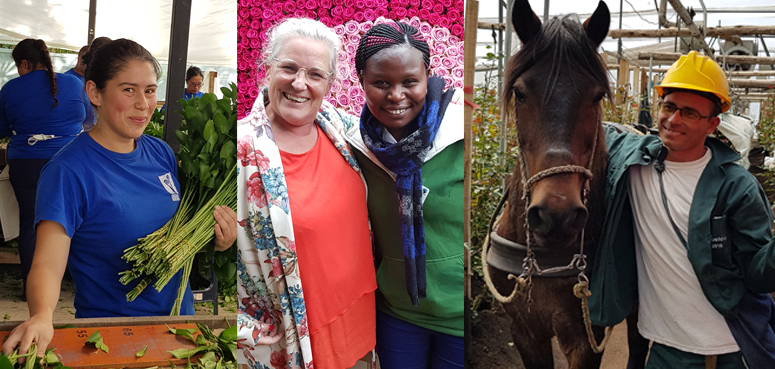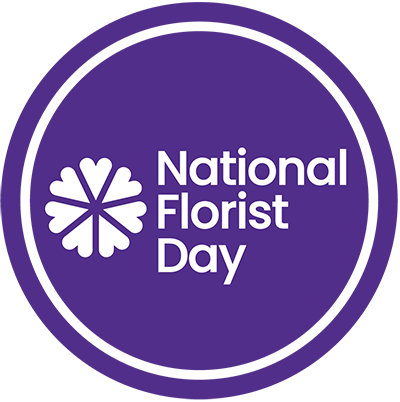
Imports ... doing good for everyone!
Over the last few weeks I have met people from around the world. Kenya, Japan, America, China, Holland, Israel, Costa Rica, Ecuador, Belgium, Colombia, India, Russia, Ethiopia to name but a few.
The connection? Flowers; a massive global industry that starts with a seed, bulb or cutting and ends with a design for a birthday, a bouquet for a wedding, a tribute for a funeral, a vase for the home.
It is one of the most exciting and diverse industries I know; not least because we all depend on something that is intrinsically dying the moment it is cut!
In fact being in flowers is knife edge stuff at every link in the chain …. stockbroking at its best. Get the timing wrong and you lose everything, get it right and you can make money. OK it’s a hell of a lot harder these days – wherever you are in the chain - but still exciting.
However the only reason the world has such a massive flower industry is because of imports. It doesn’t matter where you are, chances are imports will account for the large proportion of flowers sold in your country (China is probably the only exception at the moment but that will change too) and is probably the reason you (whoever is reading this) are in business at all.
Because however wonderful it would be to buy local all the time the reality is NO country can grow every flower needed to support local consumption; be it lack of land, lack of workers or the sheer damage it would do to the planet by needing excessive heat and light. Something that university research* proves is far more harmful than importing flowers from countries where natural resources are used.
What’s more, a research paper by CalFlowers, the Californian Association of Flower Growers & Shippers, argues that, far from damaging local growers, the presence of year round imports at prices consumers can afford, has positively encouraged sales. As a result local growers have been able to ride on the back of the increased demand and grow their own share of the market in a way they couldn’t have done on their own.
Fact is if you stop imports you’d actually see the global decimation of the flower industry. Without a reliable source of quality product on a daily basis importers, exporters, wholesalers and florists would go out of business, supermarkets (the biggest sellers of flowers) would see sales decimated and growers would have thousands of hectares lying fallow.
Not only would that result in local producers struggling again (no outlets = no sales) but the subsequent job losses would impact on the people who need the work most; the people who work on farms in countries where flower growing has made a real difference to their lives, their health and their children.
My view is if it is in season, is of a good enough quality to please your customers and reliably available then you buy local. If it isn’t then you don’t beat yourself up – or allow anyone else to beat you up - about buying imported flowers.
You see without your purchases there are hundreds of thousands of people like the ones I met this month who would not be enjoying such a good life. People like Grace from Flamingo’s farm in Kenyan, the girls working at foliage growers Rumhora in Colombia, or even Alex and his horse at Flores de Serrezuela who has a role because you buy the flowers he transports from field to pack house.
Talk flowers, talk imports and you’re talking the principle of Trade not Aid at its best! To me that is no bad thing; the fact local producers are also doing better as a result seems a total win win in my book!
** Research by Cranfield University calculated that it was better to grow flowers in Kenya and fly them in to the UK than grow in Holland. The same pricinciples apply to countries like Colombia, Ecuador, Ethiopia, Israel, Costa Rica et al.

The people behind the pictures
Lady (above left) has been working with Rumhora Foliage growers for several years and has recently given birth. Not only does she enjoy a payroll position where staff receive a monthly salary (well above Colombian national average) which includes pension and health care benefits, transport, bonus and uniform but also had 6 months maternity leave. Now, because she is still a nursing mother, she has an hour a day to do ‘new mum’ things like express milk, rest etc.
Grace Odhiambo Otieno (above middle) was born in Siaya County in Kenya and moved to the Naivasha region to work for Flamingo Horticulture. She says; ‘Being a general worker I did not have financial and project management skills. Through the Fairtrade Premium programme I was trained and improved my leadership, project management and financial management skills. I was empowered and able to take control of my own life. I am currently managing three hectares of roses and a team of 24 employees and am proud of myself thanks to Fairtrade. Fairtrade has no equal.’
Alex and his very happy horse called Muñeco work on the Flores de Serrezuela farm in the Colombian Sabana de Bogotá where they grow Carnations, Spray carnations and Roses. Muñeco pulls the cut blooms from the green house to the packing shed because it is more eco than using trucks and ergo fossil fuel.






